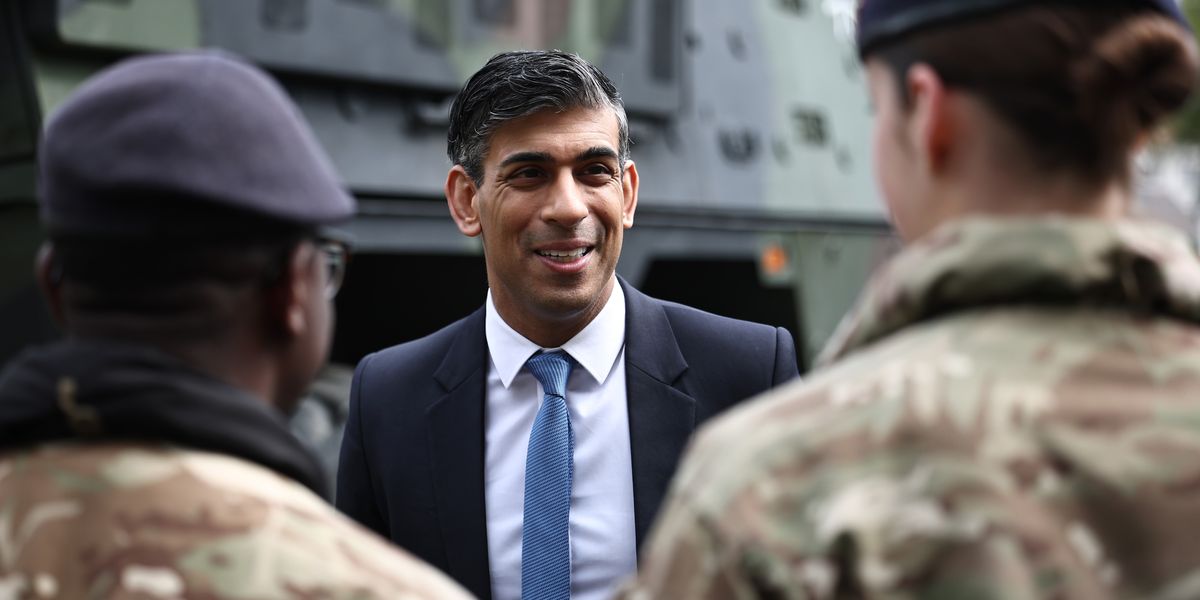
 Press Releases
Press Releases 
“We will do whatever it takes to keep our countries safe”.
The words of Prime Minister Rishi Sunak this afternoon in Berlin, standing next to German Chancellor Olaf Scholz.
Today Berlin and Scholz. Yesterday Poland, the NATO Secretary General Jens Stoltenberg and Polish PM Donald Tusk.
But the same central message: “The world is at a more dangerous point than at any point since the end of the Cold War”. Today Sunak said we are at “an inflexion point”.
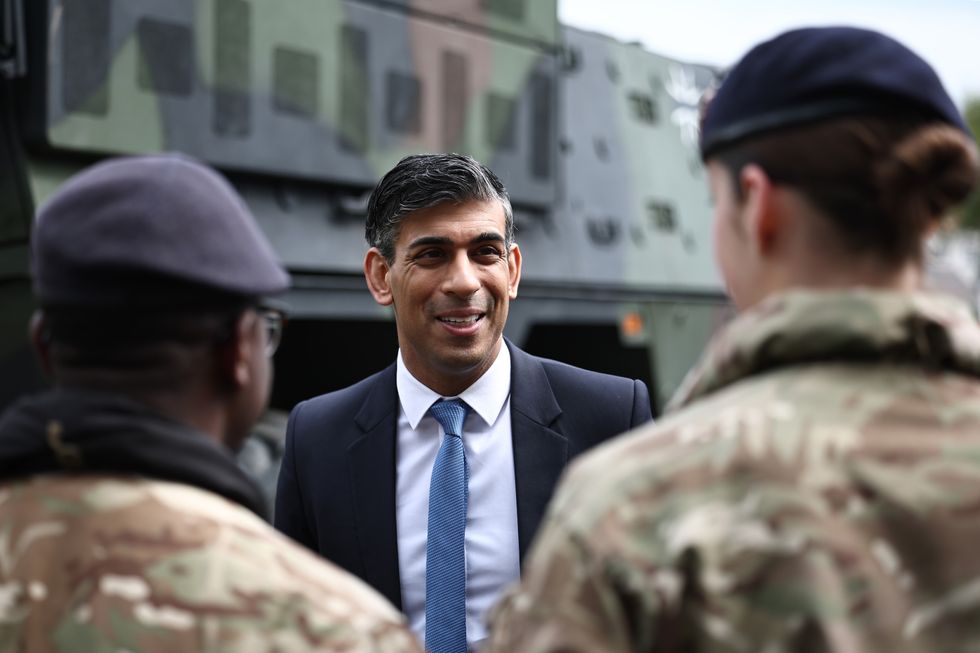
Rishi Sunak during a visit to Germany
PA
So big announcements. Yesterday’s pledge to increase UK defence spending to 2.5 per cent of GDP by 2030.
A show of solidarity with the head of Nato at a military base near Warsaw.
Today, a defence agreement with Germany to collaborate on artillery systems.
The Prime Minister says it will bring hundreds of jobs to the UK.
LATEST DEVELOPMENTS:
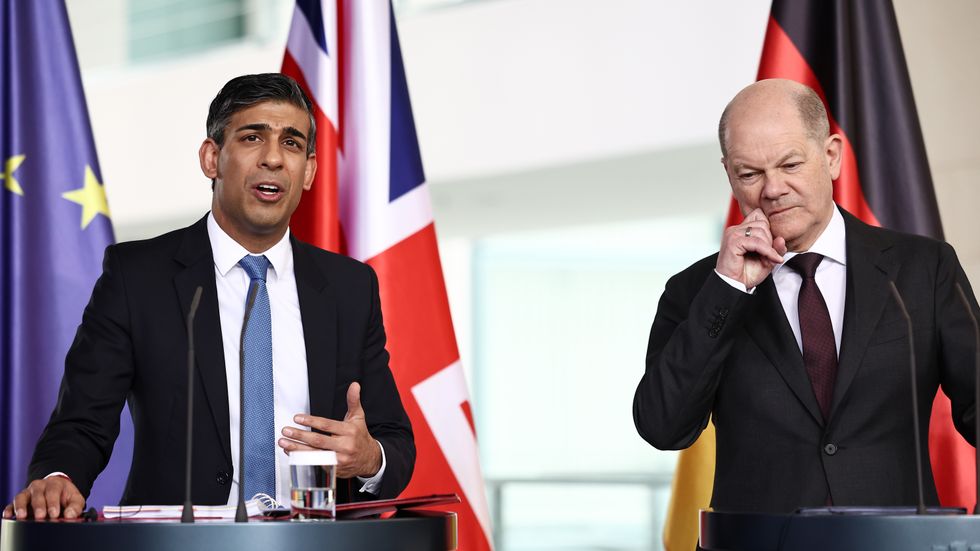
Rishi Sunak and Olaf Scholz
PA
And, following his meetings this morning with German business leaders, an announcement of £8billion in investment by German businesses into the UK.
Sunak says he is putting UK defence “on a war footing”. Our defence industry already supports 1 in 70 UK jobs.
More funding and more money funnelled into research and development can only benefit our economy.
And the Prime Minister urges other countries to step up.
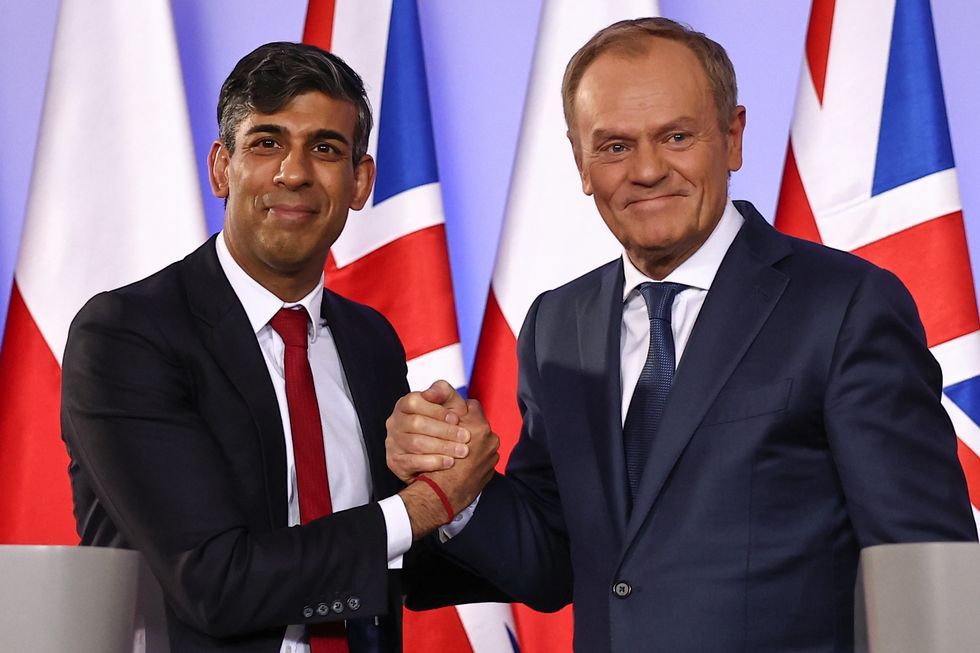
Prime Minister Rishi Sunak (left) and Polish Prime Minister Donald Tusk shake hands
PA
He stressed that the UK and Germany are the leading defence spenders in Europe, and the largest military supporters of Ukraine.
Yesterday’s announcement of an extra £500 million for Ukraine takes the total in UK military and humanitarian aid to £12billion.
Only 11 NATO members currently spend the supposed minimum of two per cent national income on defence.
In raising UK spending from the current 2.3 per cent to 2.5 per cent, Sunak is setting an example he wants others to follow.
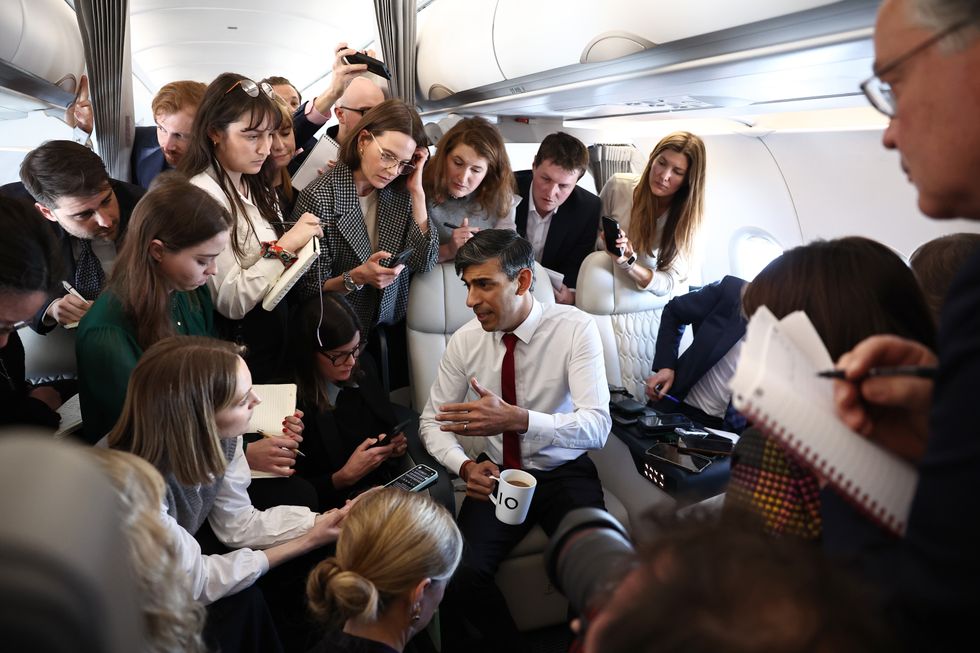
Prime Minister Rishi Sunak speaks to journalists on board a plane on his way to Warsaw
PA
But of course this is expensive. The Government claims the extra £75 billion will not be funded by increased borrowing or debt.
It talks of using money saved from cutting 70,000 civil service jobs.
The Institute For Fiscal Studies though, suggests cuts to public services will be needed. Or possible tax cuts axed.
The Prime Minister was upbeat on the plane. He told us it’s a choice he believes is right, and it’s taken time to get to this point.
It won’t be universally popular. But it’s popular with his party and likely to be so with many voters too. And it’s given the Conservatives another useful dividing line with Labour.
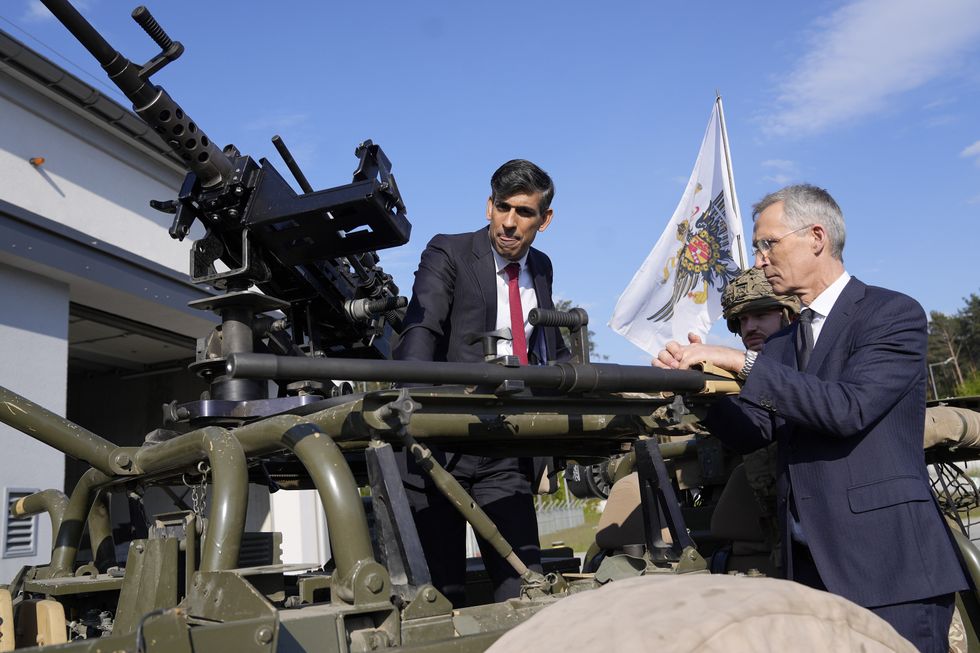
NATO Secretary General Jens Stoltenberg (right) and Prime Minister Rishi Sunak inspect weaponry at the Warsaw Armoured Brigade
PA
Labour have said they’d like to get spending to 2.5 per cent when circumstances allow. And pledged to hold a defence and security review if they come to power.
And of course they likely will do, unless the polls shift massively. So, difficult choices for them.
Ultimately though, Sunak and Jens Stoltenberg stress that defence spending is largely to prevent war. A message is being sent too, to autocratic regimes in Russia, Iran, China and North Korea.
For so long the West has enjoyed a peace dividend. Those days are gone. But as Stoltenberg said: “Nato exists to prevent war.” The price of safety in a dangerous world seems to be billions more for defence. Sunak response is “so be it”.
24World Media does not take any responsibility of the information you see on this page. The content this page contains is from independent third-party content provider. If you have any concerns regarding the content, please free to write us here: contact@24worldmedia.com